View all Standards for British Columbia, Canada
identify a range of internal and external strategies for developing character

UNIT
The Actor in Transition: From Presentational to Three-Dimensional
by John Minigan
The objective of this unit by John Minigan is to move students from a traditional presentational model of performance to a three-dimensional model. You’re going to achieve this by having students
- Develop tactics to achieve character goals, despite obstacles
- Connect physical choices to scene structure and relationships
- Clarify tactics and story rather than forcing emotion
- And focus on the scene partner rather than the self
This unit was created to use with grade nine students as a transition from middle school to high school acting approaches. It would also be appropriate for a beginning-of-the-year unit for a program that includes Drama 1. But any class that is at the beginning of their acting process will find value.
Each lesson comes with an engagement Rubric to assess how students participated in the activities and discussions.
Read More
about The Actor in Transition: From Presentational to Three-Dimensional
Read Less
about The Actor in Transition: From Presentational to Three-Dimensional
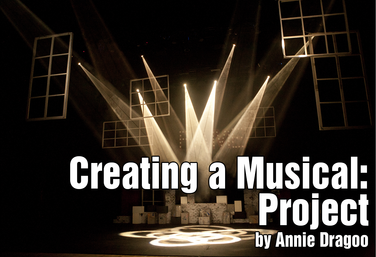
UNIT
Creating a Musical: Project
by Annie Dragoo
Want a fun project that has your students collaborating and creating? In this unit by Annie Dragoo, students in groups will write and perform an original musical by adding modern songs to a traditional fairy tale story.
The six lessons take students from writing their script, to choreography and planned movement, to rehearsing, performing and evaluation.
The Rubric will focus on student performance. That means vocal delivery, emotional delivery, blocking/choreography, energy, focus, and characters.
Read More
about Creating a Musical: Project
Read Less
about Creating a Musical: Project
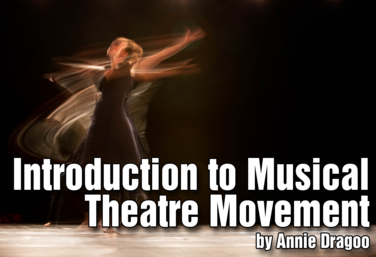
UNIT
Introduction to Musical Theatre: Movement
by Annie Dragoo
Musical theatre performers use their bodies to sing, to dance, and to act. We must think of our bodies as instruments and learn to use our instruments properly in order to be better musical theatre performers.
The overall objective with this unit, by Annie Dragoo, is for students to demonstrate an understanding of the use of good movement as it connects to musical theatre. Some of the activities include using action verbs, moving as animals and inanimate characters, nonverbal communication and situational movement. Students will then perform a scene that will allow them to put to practice all the movement techniques they have learned.
Read More
about Introduction to Musical Theatre: Movement
Read Less
about Introduction to Musical Theatre: Movement
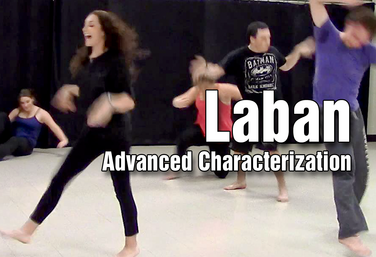
PD COURSE
Laban: Advanced Characterization
by Todd Espeland
Learn about the Laban system to teach your students to physically and vocally discover character. This is an advanced course, which means that the course goes deep into exploring character and exploring character work through the work of Rudolph Laban.
Read More
about Laban: Advanced Characterization
Read Less
about Laban: Advanced Characterization
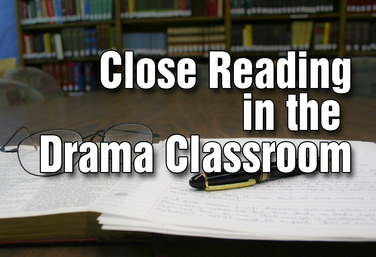
PD COURSE
Close Reading in the Drama Classroom
by Lindsay Price
Close reading is an activity that puts curriculum standards into practice and it can be easily applied to the drama classroom.
Close reading asks a lot of your students. They have to read and think at the same time.
This course teaches drama teachers how the close reading process works, and gives them exercises and tools to apply it in the classroom.
Read More
about Close Reading in the Drama Classroom
Read Less
about Close Reading in the Drama Classroom
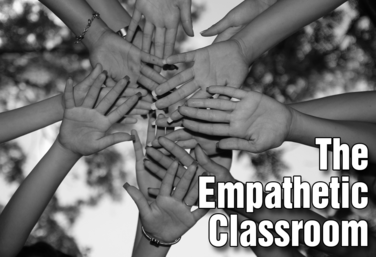
PD COURSE
The Empathetic Classroom
by Steven Stack
Why should you take a class on empathy? And why is theatre the perfect vehicle for empathy?
Empathy, the more sought-after and inclusive cousin of sympathy, is the experiencing of someone else’s experience in the world. What it would be like if you were wearing their clothes, their life?
Teaching students to understand the clothes that they’re putting on, the characters and their lives teaches students not how to act but how to be. It allows the students to feel what someone else feels and experiences, which can and should translate to their fellow actors and peers away from the stage. It will lead to a stronger class connection, stronger performances and stronger students who will seek out understanding instead of isolation and fear.
Read More
about The Empathetic Classroom
Read Less
about The Empathetic Classroom
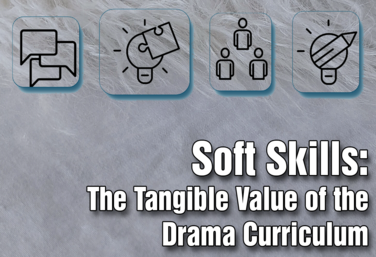
PD COURSE
Soft Skills, The Tangible Value of the Drama Curriculum
by Matt Webster
This course is about the fact that so-called soft skills are sought after and highly valued in professional work environments, educational settings, and in everyday social interactions. They're valuable life skills, but we can't always identify these skills within a standard educational setting, and yet, they are incredibly useful in education and beyond. That's why it's important to be able to identify these soft skills in the classroom and in the educational process and to recognize that these soft skills are being taught every day in the drama curriculum. We need to concentrate our efforts into making sure that these skills are identified and utilized within our classrooms. They are built into every arts curriculum a school offers, especially the theater arts.
Read More
about Soft Skills, The Tangible Value of the Drama Curriculum
Read Less
about Soft Skills, The Tangible Value of the Drama Curriculum
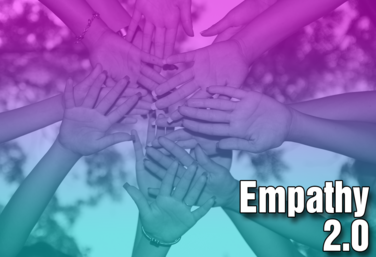
PD COURSE
Empathy 2.0
by Steven Stack
Brought to you by instructor Steven Stack, creator of The Empathetic Classroom, this course looks at ways to move on from the worldwide pandemic, while honoring the past and learning from it. In the past year, students had many things taken from them: school, hanging out with friends, freedom, hope, and innocence.
With this course, each session will highlight one specific topic relating to moving on. There will also be activities for each session that will help your students own the past, embrace their own and others’ narratives and scars, create a stronger classroom community, find ways to be where their feet are planted, and learn to play again.
Read More
about Empathy 2.0
Read Less
about Empathy 2.0
View all Standards for British Columbia, Canada Standards Master List